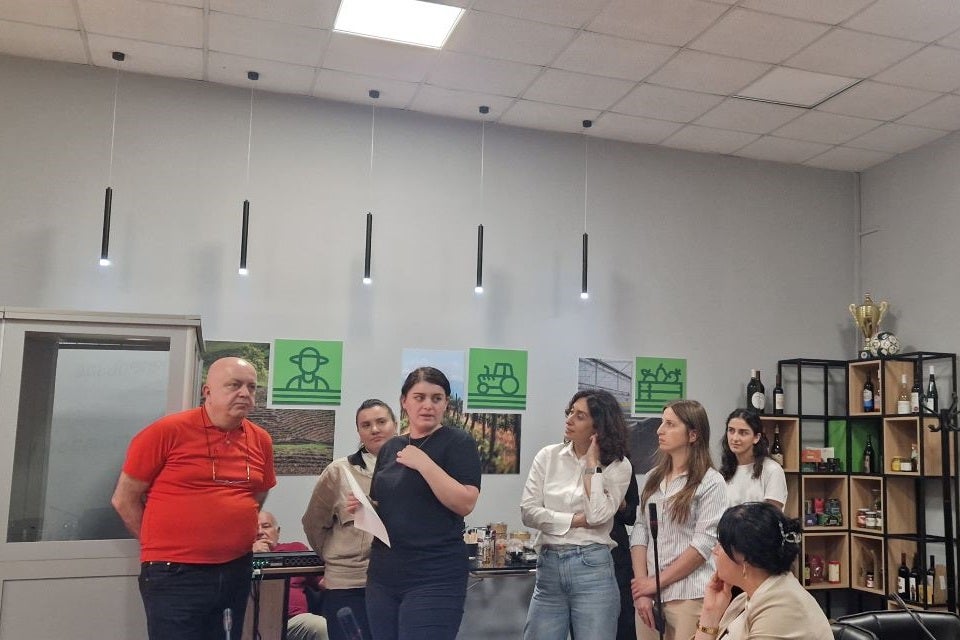Gender statistics and indicators to be introduced in the Rural Development Agency
Date:

Producing gender statistics and indicators in the agricultural sector, and basing analysis and decision-making on these findings, will significantly contribute to strengthening gender equality in this field.
Global practice confirms that collecting gender statistics and producing gender indicators on such issues as land ownership, access to finance and advisory services, participation in agricultural cooperatives and other critical matters create effective opportunities for developing agricultural support programmes. This approach ensures that the distinct needs of women and men are more effectively addressed in these programmes, thereby providing the necessary assistance to enhance productivity and sustainability.
In Georgia, initial steps in this direction were taken through collaboration with UN Women, under the Swisscontact project “Rural Small and Medium Sized Enterprise Development Project” (RSMEDP). This year, with technical and financial support from the aforementioned project and technical support from UN Women, the Rural Development Agency (RDA) has developed a system for collecting gender statistics and indicators. The agency will implement this system in its largest programmes, namely “Plant the Future” and “Preferential Agrocredit”. Notably, 12 agency employees received a three-day training session on this relevant topic, alongside three employees from the Ministry of Environmental Protection and Agriculture of Georgia.
The gender indicators of the RDA draw on international experience and encompass 13 indicators grouped into five domains. “With the assistance of gender indicators, the Rural Development Agency can analyse programmes from a gender perspective and assess progress. This will facilitate decision-making based on data, as well as the planning and implementation of various initiatives,” says Natalia Kharatishvili, Deputy Director of the RDA.
It is noteworthy that the development and implementation of the system for collecting gender-disaggregated data and gender indicators is part of the 2022–2024 Gender Strategy and Action Plan of the RDA.
The cooperation between UN Women and the Rural Development Agency is part of the “Women’s Economic Empowerment in the South Caucasus” regional project implemented by UN Women. It is being implemented with financial support from the Swiss Agency for Development and Cooperation (SDC) and the Austrian Development Agency.
The overarching goal of the RSMEDP, financed by the SDC, is to increase income and employment opportunities for rural women and men in Georgia, in line with the Swiss Cooperation Programme for the South Caucasus Region 2022–2025. It achieves this by taking a market-systems development approach to improve rural SMEs’ access to finance and business support services. The project is implemented by a consortium consisting of Swisscontact (lead), Mercy Corps and the Springfield Centre for business in development. The RSMEDP runs from 2020 to 2024.